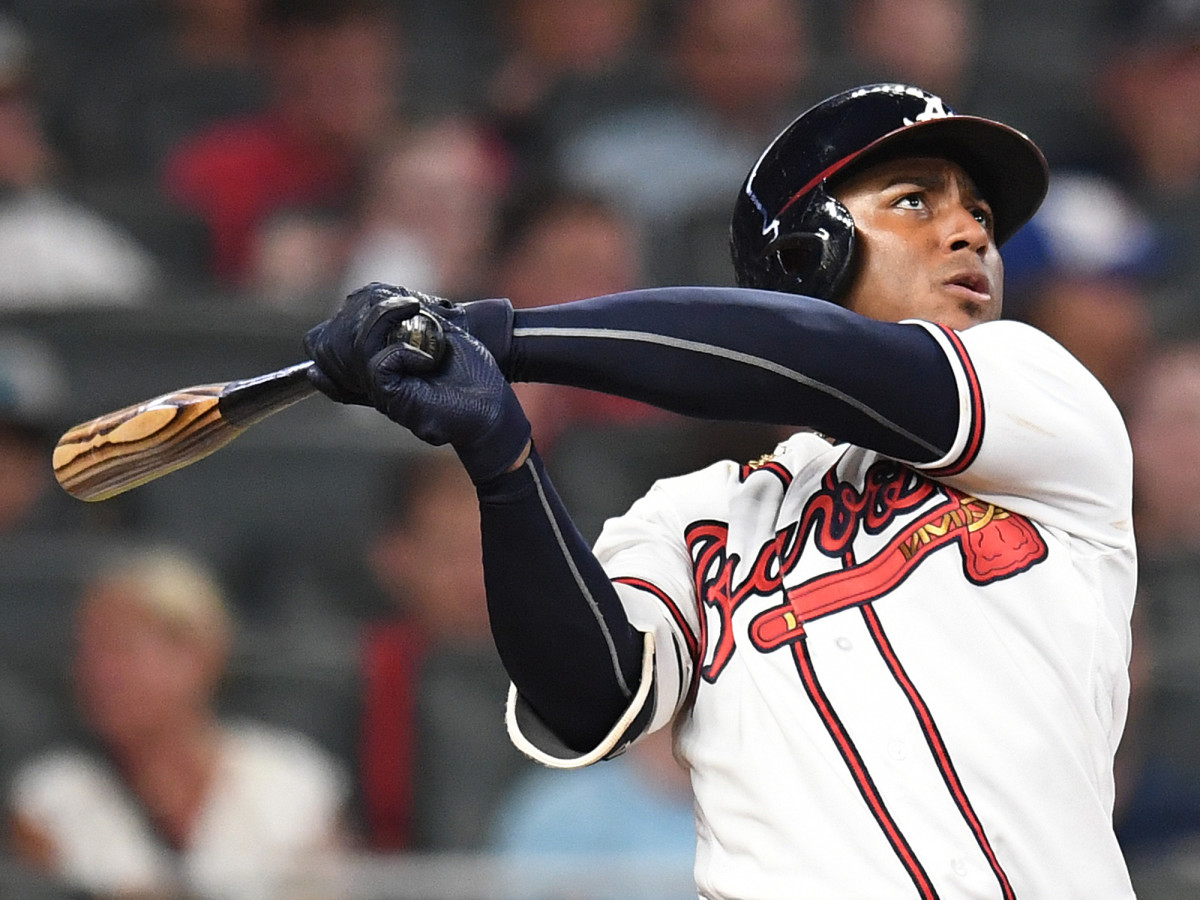Ozzie Albies's Contract Extension Is Insultingly Low

Forgive the hyperbole, but it’s warranted here: Ozzie Albies got scammed.
The Braves’ second baseman become approximately the 10,000th player in the last two months to sign a contract extension, inking a seven-year deal with Atlanta. But despite coming off a season in which he hit .261/.305/.452 with 24 homers and 3.8 bWAR, the 22-year-old will make a measly $35 million from here through 2025—an average annual value of just $5 million. On top of that, Albies gave away a staggering four free-agent years, two in club options—priced at $7 million per—that could keep him from reaching the open market until after his age-30 season.
It’s a sum of money that’s absolutely baffling given both how good Albies already is and how likely he is to be better. Again, he was worth 3.8 WAR last year—more than, among others, Joey Votto, Nelson Cruz and Anthony Rizzo. He just turned 22 in January. He plays a premium defensive position, and he plays it well. And he’s a developing power bat who also has plenty of speed. He’s the kind of player who, were he made available to the rest of baseball right now, should be worth at least nine figures.
Instead, Albies has a deal worth less over the next seven years than ones signed by Mark Trumbo, Zack Cozart and Jay Bruce. He’ll make less money per year than Luke Gregerson, Robinson Chirinos or Jedd Gyorko will in 2019 alone. All for a player who, per FanGraphs’ estimates, was worth $30.1 million in 2018—almost as much as his entire contract going forward.
In writing about the recent wave of extensions, I’ve noted two things: That below-market extensions are the inevitable outcome of an economic system that squeezes players at both ends; and that, in all cases, it’s completely understandable why a player would take that money anyway. Had Albies turned this offer down, there’s a good chance he would have made more anyway via arbitration once he got there and in free agency eventually. But there are so many potential pitfalls along the way that you can’t fault a player—particularly a young one—for deciding that he wants to guarantee his future now, even if he’s selling it for a pittance.

Still, though, this is egregious, both on the part of his agency and his team. For the former, it’s inconceivable if not unacceptable that they couldn’t get a better offer for a player of Albies’ caliber. But the latter is what sticks out, in getting a player for a fraction of his worth—and for a fraction of what they easily could have afforded. Atlanta could have given Albies a contract twice as big, if not three times, and never sweated a single cent of it. The team’s payroll ranks just 21st in the majors at $113 million—$20 million under the league average and nearly $100 million away from the luxury tax threshold. There are acres of room to add big contracts over multiple years, as ownership already did with Ronald Acuña Jr. (who also signed a deal that was notably less than he’ll likely be worth going forward). The Braves didn’t have to offer Albies a small contract because of budget constraints or a bloated payroll or the fear of huge future expenditures.
No, the Braves did this because they hold all the power, have all the leverage, and completely control Albies’ fate. They made him choose between less than he’s worth and the fear of the unknown, and they knew full well that most if not all players don’t want to play chicken with their financial future and will take the money even if it’s insultingly low. They didn’t have to do that; they could have given Albies far more and never missed it. But they did it anyway, because that’s the right business decision, even if it’s ethically and morally wrong.
That’s the guiding principle behind below-market extensions and service time manipulation and kneecapping free agency: That at the end of the day, it’s about what’s best for the bottom line, no matter what. In this, MLB teams and owners are a unified front: We’ll pay you what we want, not what you deserve, and if you don’t like it, what are you going to do? You can either take it or not. And if you don’t, we’ll make sure to fight you every step of the way financially, always holding out for every last penny, even if we’re wealthy beyond belief.
Even if Albies is happy with what he’s got and getting to stay in Atlanta with Acuña, he deserved better. So does every player who isn’t earning his full worth, employed by teams that operate in bad financial faith, and tethered to a system that doesn’t have their best interests in mind.
